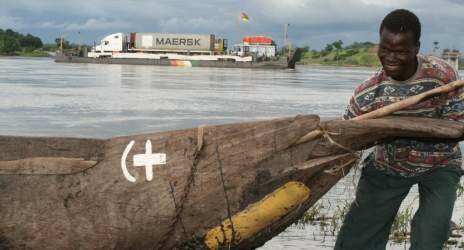
The Mozambique Red Cross Society (MRCS) and the International Federation of Red Cross and Red Crescent Societies (IFRC) have released a new study entitled “International Disaster Response Law (IDRL) in Mozambique: An analysis of the legal preparedness of Mozambique for facilitating and regulating international disaster response operations.”
The study reviews Mozambique’s legislative framework for international disaster response operations and provides a series of recommendation for addressing gaps. It was first presented publicly by MRCS Secretary-General Americo Ubisse at a side-event convened by the IFRC during the July 2012 session of the Economic and Social Council in New York.
Although Mozambique has made major advances in the past decade with regard to the establishment of legal, institutional, policy and programme framework pertaining to domestic disaster management, the study indicates that there are several gaps in the law when it comes to the provision of assistance by international actors. These include the absence of explicit procedures for the launch of an international appeal, lack of procedures to waive visa requirements for relief workers and gaps in the procedures for tax exemptions for humanitarian relief goods. They have historically resulted in ad hoc measures being taken after the occurrence of a disaster to facilitate the entry of international disaster assistance, not always with success.
By way of example, Mr. Ubisse noted that, “in some cases the import of medication has been a challenge. We experience delays at the border, due to bureaucracy, which is time consuming. A well structured law could solve this problem. On the other hand there is also a responsibility on the side of the donors. For example, during the floods of 2000-2001 we were forced to destroy a consignment of donated medicines which had almost reached the expiry date, or had already expired. We realised that there was something to be done about this by encouraging the government to change its rules for the importation of medication, but also in the way of requesting donations and overseeing the quality of donated goods.”
Currently, the Mozambican authorities are in the process of drafting a national disaster management law and revising other important legal instruments. The main recommendation of this report is that existing ad hoc solutions be translated into a permanent legal framework, including clear provisions clarifying how to cooperate with international actors. It should define when international assistance can be requested, what legal facilities international actors are entitled to, and under which conditions.
The IFRC and the Mozambique Red Cross are committed to continuing their support to the Government of Mozambique in its process of finalizing and rolling out effective disaster laws in the coming months.
The full version of the report in Portuguese, as well as an English summary are available on the website of the IFRC’s Disaster Law Programme.